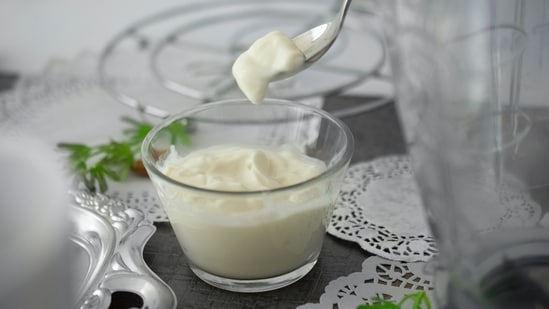Blood
High blood pressure: 5 amazing probiotics for lowering hypertension; lifestyle changes
A study says probiotics can help you manage high BP. Here’s a list of fermented foods and probiotics that you can consume for keeping hypertension at bay.
Managing hypertension, often referred to as a silent killer, in modern times isn’t easy. Risk factors for high blood pressure like unhealthy diet, stress, and processed foods with high amounts of salt are all around us leading to an increase in hypertension cases. WHO’s recent report discussing devastating impact of high blood pressure also highlights the need to follow preventive measures to win the fight against this dreaded disease. Hypertension can significantly increase risk of heart attack and stroke, but lifestyle measures and diet can play a key role in managing blood pressure. A recent study published on mSystems says there is evidence indicating that adding probiotics to the diet may have antihypertensive effects. The study elaborates that probiotic strains Bifidobacterium lactis and Lactobacillus rhamnosus, which can be found in foods like yogurt and cheese are especially helpful. (Also read: WHO’s first-ever report on high BP’s impact; 76 million deaths can be averted between 2023 and 2050)
HIGH BLOOD PRESSURE, THE SILENT KILLER
“High blood pressure, also known as hypertension, is a common health concern in India and around the world. It is a silent killer that is often ignored until it leads to complications such as heart disease and stroke. It is ranked as the third most important risk factor contributing to other chronic diseases. Recent studies show that there was a significant increase in the prevalence of hypertension from 19% in men and 17% in women to 24% and 21% respectively. Hypertension, or high blood pressure, poses several significant health risks,” says Clinical Dietician Kajal Aggarwal, PCOD expert and Founder of Dietician Kajal’s App in an interview with HT Digital.
“Recent studies suggest that probiotics, beneficial microorganisms that promote gut health, may play a crucial role in lowering blood pressure. Probiotics are live microorganisms that are known to provide various health benefits when consumed in adequate amounts. These microorganisms are often referred to as ‘good’ or ‘friendly’ bacteria because they have a positive impact on our digestive and overall health,” says Aggarwal.
PROBIOTICS FOR HEART HEALTH
Aggarwal shares list of 5 probiotics that you should consider adding to your diet for a healthier heart.
1. Kombucha: Kombucha is a fizzy, fermented tea made by fermenting sweet tea with a symbiotic culture of bacteria and yeast (SCOBY). It contains acetic acid and a variety of probiotic strains and is also rich in polyphenol that have blood pressure-lowering effects.
2. Sauerkraut: Sauerkraut is a fermented cabbage dish that is rich in Lactobacillus bacteria. The high fiber content in sauerkraut supports heart health by aiding in the reduction of cholesterol levels.
3. Beetroot Kanji: Beetroot kanji is a traditional Indian probiotic drink made from fermented beetroot and various spices. Moreover, beetroot’s natural nitrates have vasodilatory effects, further supporting cardiovascular health.
4. Yogurt: Yogurt is one of the most common probiotic foods. It is rich in live bacterial cultures, primarily Lactobacillus and Bifidobacterium strains. These probiotics play a crucial role in the gut, where they can aid in reducing inflammation and regulating blood pressure.
5. Homemade Dahi (Curd): Dahi or curd is a staple in many Indian households. When made at home, it can be an excellent source of probiotics. The live strains of good bacteria present in homemade dahi contribute to the regulation of blood pressure.
Additionally fermented foods such as idli, dosa can also be added to diet. Even though their live probiotic content gets destroyed in cooking but still there are few strains that are heat resistant.
LIFESTYLE CHANGES TO CONTROL HIGH BLOOD PRESSURE
Apart from incorporating these probiotics into your diet, there are other important lifestyle modifications to lower blood pressure. These include:
1. Dietary changes: Reduce sodium intake, increase potassium-rich foods like fruits and vegetables, and maintain a balanced diet low in saturated and trans fats.
2. Regular exercise: Engage in physical activity to promote heart health and maintain a healthy weight
3. Stress management: Practice relaxation techniques such as meditation and deep breathing to lower stress, which can contribute to high blood pressure.
4. Regular check-ups: Visit your healthcare provider regularly to monitor your blood pressure and receive guidance on its management.
In conclusion, while probiotics can significantly lower blood pressure, they should be part of a broader approach to manage hypertension. Combining probiotics with a healthy lifestyle can be a powerful strategy for keeping your blood pressure in check and safeguarding your heart.
 Subscribe today by clicking the link and stay updated with the latest news!” Click here!
Subscribe today by clicking the link and stay updated with the latest news!” Click here!
